 W
WRichard Bland, sometimes referred to as Richard Bland II or Richard Bland of Jordan's Point, was an American planter and statesman from Virginia and a cousin of Thomas Jefferson. He served for many terms in the House of Burgesses and was a delegate to the Continental Congress in 1774 and 1775.
 W
WTheodorick Bland, also known as Theodorick Bland, Jr., was an American planter, physician, soldier, and politician from Prince George County, Virginia. He became a major figure in the formation of the new United States government, representing Virginia in both the Continental Congress and the United States House of Representatives, as well as serving multiple terms in the Virginia House of Delegates representing Prince George County, which he also represented in the Virginia Ratification Convention.
 W
WCarter Braxton was a signer of the United States Declaration of Independence, as well as a merchant, planter, and Virginia politician. A grandson of Robert "King" Carter, one of the wealthiest and most powerful landowners and slaveholders in the Old Dominion, Braxton was active in Virginia's legislature for more than 25 years, generally allied with Landon Carter, Benjamin Harrison V, Edmund Pendleton and other conservative planters.
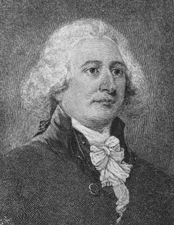 W
WJohn Brown was an American lawyer and statesman who participated in the development and formation of the State of Kentucky after the American Revolutionary War.
 W
WEdward Carrington was an American soldier and statesman from Virginia. During the American Revolutionary War he became a lieutenant colonel of artillery in the Continental Army. He distinguished himself as quartermaster general in General Nathanael Greene’s southern campaign. He commanded artillery at Monmouth and Yorktown. He was also present at Cowpens, Guilford Court House, and Hobkirk's Hill. During the war he became a close friend of George Washington. Carrington served in the 3rd Continental Congress and was the first US Marshal appointed from his state. He was an original member of the Society of the Cincinnati.
 W
WWilliam Fitzhugh III was an American planter, legislator and patriot during the American Revolutionary War who served as a delegate to the Continental Congress for Virginia in 1779, as well as many terms in the House of Burgesses and both houses of the Virginia General Assembly following the Commonwealth's formation. His Stafford County home, Chatham Manor, is on the National Register for Historic Places and serves as the National Park Service Headquarters for the Fredericksburg and Spotsylvania National Military Park.
 W
WJudge William Fleming was an American lawyer, jurist and political figure from Cumberland County, Virginia. He is often confused with his contemporary, Colonel William Fleming, who briefly served as Governor of Virginia during the American Revolution.
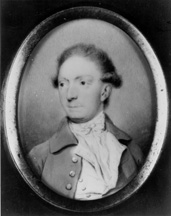 W
WWilliam Grayson was a soldier, lawyer, and statesman from Virginia. He was one of the first two U.S. Senators from Virginia, and belonged to the Anti-Federalist faction; he was also the first member of the United States Congress to die while holding office.
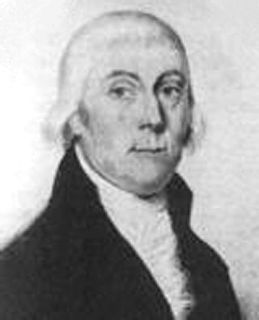 W
WCyrus Griffin, a Virginia lawyer and politician, was the final President of the Congress of the Confederation and first United States District Judge of the United States District Court for the District of Virginia.
 W
WSamuel Hardy was an American lawyer, planter and politician, who served as a delegate to the Continental Congress and in the Virginia House of Delegates representing Isle of Wight County, as well as briefly on Virginia's Executive Council and as Lieutenant Governor of Virginia.
 W
WBenjamin Harrison V was an American planter, merchant and politician who served as a legislator in colonial Virginia, following a precedent of public service established by his namesakes. He signed both the Continental Association and the United States Declaration of Independence and is known as one of the Founding Fathers of the United States. He served as Virginia's governor from 1781 to 1784.
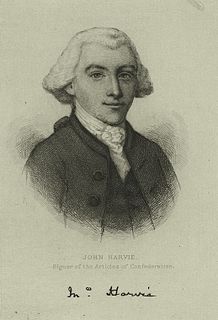 W
WJohn Harvie was an American lawyer and builder from Virginia. He was a delegate to the Second Continental Congress, where he signed the Articles of Confederation, in 1777 and 1778. He was a successful lawyer and landowner, as well as the fourth mayor of Richmond, Virginia. Thomas Jefferson was a friend since his childhood; his father was Jefferson's guardian. He negotiated a peace treaty in 1774 after the Battle of Point Pleasant. During the American Revolutionary War, he was on the Board of War and operated a prison of war camp on his property, The Barracks.
 W
WPatrick Henry was an American attorney, planter, politician, and orator best known for his declaration to the Second Virginia Convention (1775): "Give me liberty, or give me death!" A Founding Father, he served as the first and sixth post-colonial Governor of Virginia, from 1776 to 1779 and from 1784 to 1786.
 W
WThomas Jefferson was an American statesman, diplomat, lawyer, architect, musician, philosopher, and Founding Father who served as the third president of the United States from 1801 to 1809. He had previously served as the second vice president of the United States under John Adams between 1797 and 1801, and as the first United States secretary of state under George Washington between 1790 to 1793. The principal author of the Declaration of Independence, Jefferson was a proponent of democracy, republicanism, and individual rights for certain categories of people, motivating American colonists to break from the Kingdom of Great Britain and form a new nation; he produced formative documents and decisions at both the state and national levels.
 W
WArthur Lee was a physician and opponent of slavery in colonial Virginia in North America who served as an American diplomat during the American Revolutionary War. He was educated in medicine and law at the University of Edinburgh and in London, respectively. After passing the bar, he practiced law in London for several years. He stayed in London during the Revolutionary War, representing the colonies to Britain and France and also serving as an American spy to track their activities. After his return to Virginia, he served as a delegate to the Continental Congress.
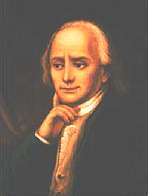 W
WFrancis Lightfoot Lee was a member of the House of Burgesses in the Colony of Virginia. As an active protester regarding issues such as the Stamp Act of 1765, Lee helped move the colony in the direction of independence from Britain. Lee was a delegate to the Virginia Conventions and the Continental Congress. He was a signer of the Articles of Confederation and the Declaration of Independence as a representative of Virginia. In addition to his career in politics, Lee owned a tobacco plantation as well as many slaves. He was a member of the Lee family, a prominent Virginian dynasty whose members accumulated their wealth and power through plantation slavery.
 W
WHenry Lee III was an early American Patriot and U.S. politician who served as the ninth Governor of Virginia and as the Virginia Representative to the United States Congress. Lee's service during the American Revolution as a cavalry officer in the Continental Army earned him the nickname by which he is best known, "Light-Horse Harry". He was the father of Robert E. Lee, who led Confederate armies against the U.S. in the American Civil War.
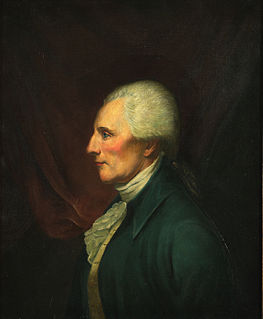 W
WRichard Henry Lee was an American statesman and Founding Father from Virginia, best known for the June 1776 Lee Resolution, the motion in the Second Continental Congress calling for the colonies' independence from Great Britain leading to the United States Declaration of Independence, which he signed. He also served a one-year term as the President of the Continental Congress, was a signatory to the Articles of Confederation, and was a United States Senator from Virginia from 1789 to 1792, serving during part of that time as the second President pro tempore of the upper house.
 W
WJames Madison was an American statesman, diplomat, expansionist, philosopher, and Founding Father who served as the fourth president of the United States from 1809 to 1817. He is hailed as the "Father of the Constitution" for his pivotal role in drafting and promoting the Constitution of the United States and the United States Bill of Rights. He co-wrote The Federalist Papers, co-founded the Democratic-Republican Party, and served as the fifth United States Secretary of State from 1801 to 1809.
 W
WJames Mercer, was an Virginia lawyer, military officer, planter, jurist and politician.
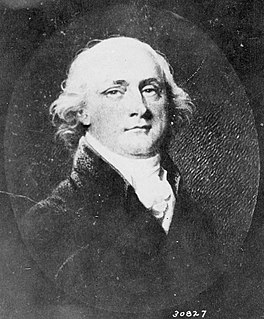 W
WJohn Francis Mercer was an American lawyer, planter, and politician from Virginia and Maryland, who served as Maryland's governor, as well as terms in the Continental Congress, U.S. House of Representatives, Virginia House of Delegates, and Maryland State Assembly
 W
WJames Monroe was an American statesman, lawyer, and diplomat who served as the fifth president of the United States from 1817 to 1825. A member of the Democratic-Republican Party, Monroe was the last president of the Virginia dynasty and the Republican Generation; his presidency coincided with the Era of Good Feelings, concluding the First Party System era of the American politics. He is perhaps best known for issuing the Monroe Doctrine, a policy of opposing European colonialism in the Americas. He also served as the governor of Virginia, a member of the United States Senate, the U.S. ambassador to France and Britain, the seventh Secretary of State, and the eighth Secretary of War.
 W
WThomas Nelson Jr. was an American soldier and statesman from Yorktown, Virginia, and is considered one of the U.S. Founding Fathers. In addition to serving in the Virginia General Assembly for many terms, he twice represented Virginia in the Continental Congress. Fellow Virginia legislators elected him to serve as the commonwealth's governor in 1781.
 W
WMann Page (1749–1781), sometimes referred to as Mann Page III, was an American lawyer, politician and planter from Spotsylvania County, Virginia, who served in the House of Burgesses and first Virginia House of Delegates as well as a delegate for Virginia to the Continental Congress in 1777. His elder half brother was Virginia Governor John Page. Since the name was common in the family, and five men of the same name served in the Virginia General Assembly, relationships are discussed below.
 W
WEdmund Pendleton was a Virginia planter, politician, lawyer and judge. He served in the Virginia legislature before and during the American Revolutionary War, rising to the position of Speaker. Pendleton attended the First Continental Congress as one of Virginia's delegates alongside George Washington and Patrick Henry, and led the conventions both wherein Virginia declared independence (1776) and adopted the U.S. Constitution (1788).
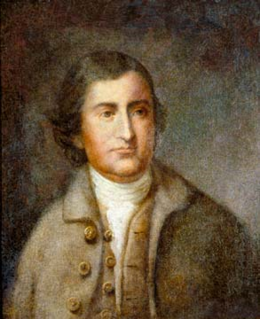 W
WEdmund Jennings Randolph was an American attorney and politician. He was the 7th Governor of Virginia, and, as a delegate from Virginia, he attended the Constitutional Convention and helped to create the national constitution while serving on its Committee of Detail. He was the 1st United States Attorney General and subsequently the 2nd Secretary of State during George Washington's presidency.
 W
WPeyton Randolph was a planter and public official from the Colony of Virginia. He served as Speaker of the Virginia House of Burgesses, president of Virginia Conventions, and the first and third President of the Continental Congress. Randolph was technically the very first leader of The United States of America, as he was the Leader of the Continental Congress, who were the Leaders of the Nation during the American Revolutionary War.
 W
WMeriwether Smith was an American planter from Essex County, Virginia.
 W
WJohn Walker was a public official from Virginia.
 W
WGeorge Washington was an American political leader, military general, statesman, and Founding Father, who served as the first president of the United States from 1789 to 1797. Appointed by the Continental Congress as commander of the Continental Army, Washington led the Patriot forces to victory in the American Revolutionary War, and presided at the Constitutional Convention of 1787, which established the Constitution of the United States and a federal government. Washington has been called the "Father of the Nation" for his manifold leadership in the formative days of the country.
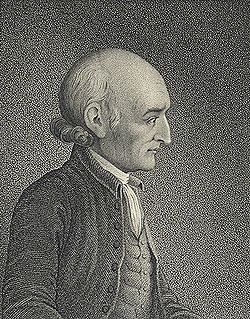 W
WGeorge Wythe was the first American law professor, a noted classics scholar, and a Virginia judge. The first of the seven Virginia signatories of the United States Declaration of Independence, Wythe served as one of Virginia's representatives to the Continental Congress and the Philadelphia Convention. Wythe taught and was a mentor to Thomas Jefferson, John Marshall, Henry Clay and other men who became American leaders.